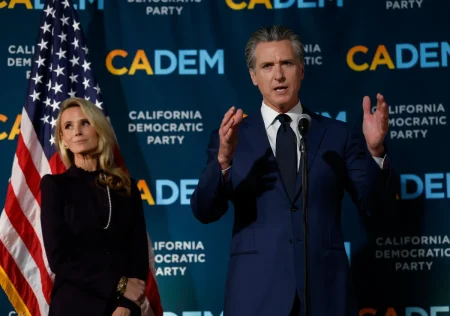A significant labor dispute has unfolded in Atlantic City surrounding the ongoing debate about smoking in casinos, which has intensified divisions among union leaders. The conflict intensified when Ray Jensen, assistant director of United Auto Workers (UAW) Region 9, publicly criticized Donna DeCaprio, president of Local 54 Unite Here, for allegedly neglecting the health and safety of casino workers regarding secondhand smoke exposure. Jensen’s union represents dealers at three casinos and has taken legal steps towards abolishing smoking in such establishments. He harshly called for DeCaprio’s resignation, claiming she should feel ashamed for not supporting measures that protect workers from health hazards associated with secondhand smoke.
The heart of this contention is New Jersey’s casino smoking exemption, which permits smoking on a quarter of gaming floors, creating a clash between labor organizations over worker safety and job security. The exemption affects all nine Atlantic City casinos, including well-known establishments such as Bally’s, Borgata, and Caesars. While some unions advocate for a total smoking ban on health grounds, Local 54 maintains that such measures could have devastating consequences for the casino industry, risking thousands of jobs. This ongoing debate reflects broader public health concerns against traditional industry practices, as unions grapple with achieving a balance between worker health and employment stability.
In defense of her union’s position, DeCaprio referenced data indicating that smoking areas are responsible for a substantial amount of casino revenue—between 50 percent and 72 percent of total earnings—despite occupying a mere 25 percent of casino space. DeCaprio argued that the UAW’s push for a ban neglects the potential threat such actions pose to the stability of casino jobs amid fears of industry closures. This view stands counter to emerging arguments supported by research which suggests that casinos that adopted smoking prohibitions during the pandemic did not incur major revenue losses, and in some cases, non-smoking venues outperformed their smoking-permitted competitors.
Legislative and societal shifts stemming from the pandemic have prompted casinos to evolve their operations, prompting workers organized under Casino Employees Against Smoking’s Effects (CEASE) to push relentlessly for an end to the smoking exemption in New Jersey. Workers have reported rising cases of serious illnesses, prompting CEASE to challenge a recent court ruling that permitted continued smoking in casinos. The pandemic has altered various aspects of casino operations, hinting that the adaptation to higher health standards, including smoking restrictions, may be possible without deterring patronage.
Historical insights into labor unions and tobacco companies reveal links that add depth to the current dispute. Documents from the early 90s indicate that tobacco companies aimed to win support from labor organizations, recognizing unions’ critical role in opposing smoking bans in hospitality. This backdrop illustrates that the issue touches on not just health and safety but also the longstanding dynamics between labor rights and corporate interests in the casino sector. Resistance to these changes hints at broader economic implications and the persistence of traditional views on smoking in hospitality settings, particularly in regions like Las Vegas that remain largely smoking-friendly.
As calls for legislation to ban smoking in casinos gain traction, New Jersey Governor Phil Murphy has expressed support for such a move, pledging to enact a ban if legislation were presented to him. However, voices within the Casino Association of New Jersey, supported by Local 54, caution against such measures—arguing they could lead to a significant reduction in tax revenues essential for funding programs that benefit vulnerable populations such as senior citizens and individuals with disabilities. DeCaprio suggested that while a ban could aid in protecting worker health, there must be a compromise involving essential improvements in ventilation and policies to shield workers from being assigned to smoking sections involuntarily—a nuanced approach to navigate the complex terrain of public health advocacy and economic sustainability in the regional casino industry.














